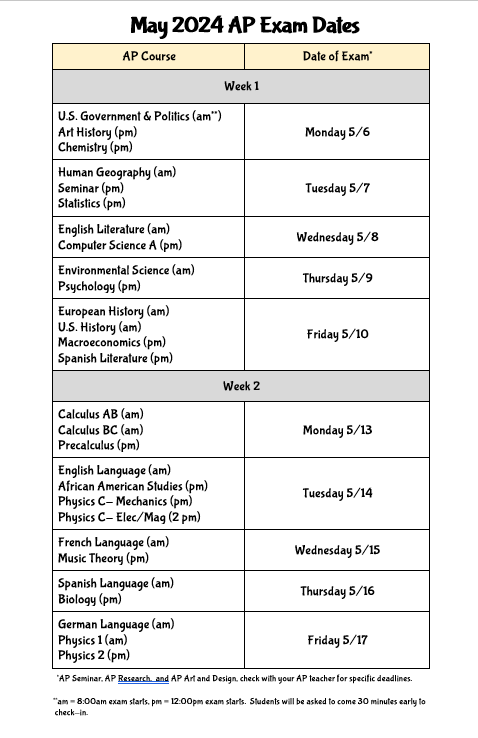As May approaches, students nationwide find themselves on the brink of one of the most challenging times of the academic year: Advanced Placement (AP) Exam season. As students gear up to tackle these rigorous assessments, the halls buzz with anticipation and anxiety. The impending AP Exams are more than just a culmination of a year’s learning. They can represent a pivotal moment in a student’s academic journey. These exams have become more critical than ever in recent years as the educational environment has become even more competitive.
A Background on AP Exams
The College Board established the Advanced Placement program in the 1950s to offer rigorous college-level courses to high school students and reduce the gap between secondary and higher education. The program began in a few schools with only 11 courses. Over the years, it has become a vital aspect of the American high school experience, with over 30 courses across various disciplines. AP courses allow students to gain more knowledge about subjects and, if they do well on the AP exam, earn college credit . The scores students receive on these exams can impact college admissions decisions, placement into advanced college courses, and even the potential to earn college credits, ultimately saving time and money to pursue a degree.
From The Eyes of A Freshman
For freshmen, the prospect of tackling an AP course can be overwhelming. Many of them will also be taking their first AP Exam, which is AP Human Geography. As the introductory course to the AP curriculum, AP Human Geography gives students a good overview of how AP courses function. However, the road ahead can be quite steep as many freshmen have to get used to the difficult framework of the AP exams.
“Sometimes I think I put the correct answer, and it seems pretty reasonable, but it’s not on the rubric,” freshman Nia Mendonca explained. “I feel like the AP exams are a Milestone, but in all the AP exams, we have a written portion, which is hard, so I feel like that’s different.”
The nuanced nature of such college-level exams is relatively new to freshmen who only had to take the Georgia Milestones or other tests that did not require such levels of precision. The written parts of these exams rely on the knowledge and the ability to articulate responses in alignment with the scoring criteria, which can become a source of frustration. However, effective study techniques can resolve these frustrations.
Study Techniques
The best advice is to utilize all the available resources. Take advantage of resources provided by AP teachers, such as review sessions, study guides, and practice exams. Additionally, online resources like Khan Academy and College Board’s AP Classroom can offer valuable supplementary materials. Don’t hesitate to seek help from classmates, tutors, or online forums if something seems challenging. Also, taking timed practice tests can be beneficial in pinpointing weaknesses and allowing students to try different ways to manage their time.
“I will be going through each unit and then doing reviews and practice tests,” Junior Annika Gangrade noted. “My main worry is that I won’t finish on time so I will focus on that.”
It is essential to understand weaknesses and strengths and work on those to ensure success on the AP exams. Without proper preparation and working on the things that one is scared of, walking into that exam room will be much more difficult.
Ultimately, these exams are only exams and do not define one’s intelligence or worth and ability as a student. Stay focused, stay positive, and do your best. Your dedication and hard work will pay off, regardless of the outcome of a single exam. Good luck, Longhorns!















